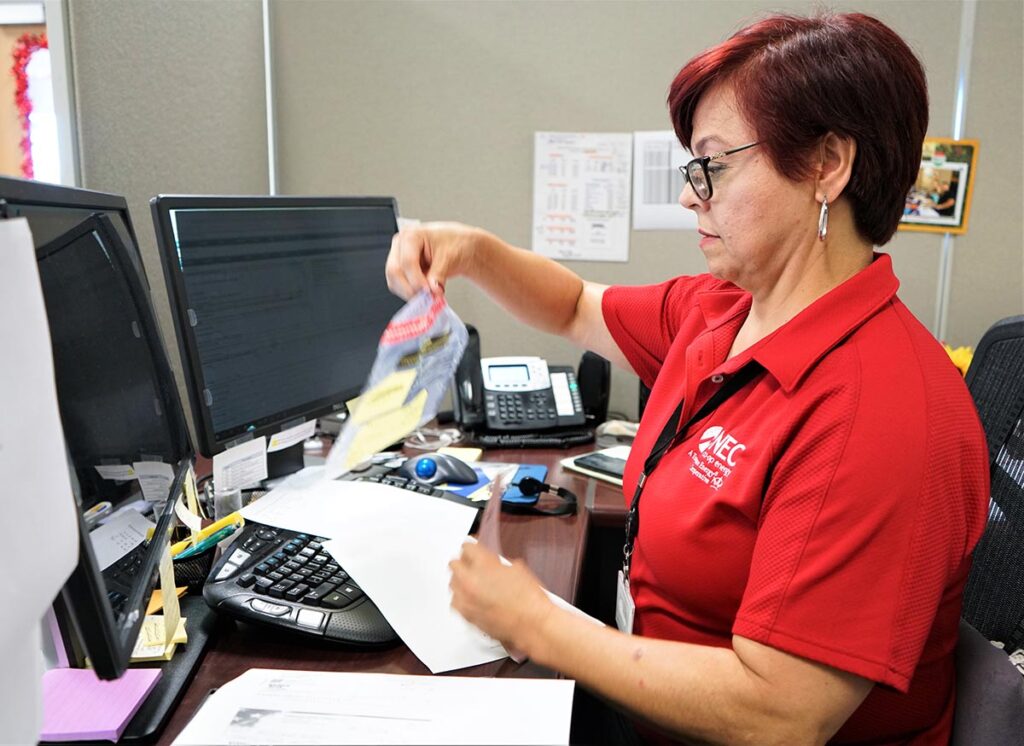
When Winter Storm Uri hit Texas in February 2021 and historic electricity demand sent wholesale power prices above $9,000 per megawatt-hour, NEC Co-op Energy was among the retail electric providers in the state that managed to keep power flowing and member prices steady through the crisis.
Varzavand “Avan” Irani, CEO of Nueces Electric Cooperative, which runs NEC Co-op Energy, credits that to a 20-year commitment to reliability and the work of their generation and transmission co-op, South Texas Electric Cooperative.
“Our board has always prioritized the long-term reliability of our members’ power supply needs over short-term gains. With this clear directive in mind, we took early steps to limit our exposure to volatile retail electric pricing through investments in diverse sources of power and long-term power purchase agreements,” Irani said. “South Texas Electric Cooperative, our generation partners, have been extremely responsive to this approach and have played a vital role in the success of NEC Co-op Energy.”
During Uri, it was STEC’s broad portfolio of generation assets, including lignite, natural gas, wind, solar and hydro, that helped keep power flowing and prices in check for NEC Co-op Energy customers.
“STEC’s investments allow us to protect our members from major impacts to their electric bills during events like Winter Storm Uri,” said Frank Wilson, Nueces EC’s chief retail officer.
“STEC’s facilities were winterized, and precautionary measures were taken beforehand. Their plants continued generating throughout and minimized our exposure to high market prices.”
Nueces EC is unique among U.S. distribution cooperatives, managing a retail energy marketing company that serves members hundreds of miles outside its own territory. It created NEC Co-op Energy in 2002 in response to state legislation passed in 1999 that allowed ratepayers to choose their own power provider.
In most states, cooperatives and municipal utilities are exempt from retail choice. In Texas, retail choice is mandatory for utilities that operate within the footprint of the Electric Reliability Council of Texas, which covers most of the state, but co-ops and municipal utilities can opt out of participation in such programs.
“NEC’s retail choice program is yet another example of electric cooperatives listening to their members and providing them with solutions that meet their needs,” said Venkat Banunarayanan, NRECA’s vice president of Business & Technology Strategies for integrated grid services. “The retail choice program offered by NEC is innovative and brings the advantages of a trustworthy and credible cooperative utility partner for the supply of electricity to retail consumers across the state of Texas.”
Those who sign up for NEC Co-op Energy become members, and the co-op procures electricity on their behalf through ERCOT and delivers it through the local power line provider.
“With access to surplus, low-cost coal-fired generation, NEC Co-op Energy was competitively positioned to enter the market and successfully compete against higher-cost natural gas-supplied providers,” said Wilson.
In 2002, Nueces EC served about 12,000 meters, but an agreement with an investor-owned utility to resolve territorial issues added about 5,000 former IOU accounts to the co-ops’ rolls. It also gave NEC Co-op Energy access to market its services for retail choice and allowed the co-op to pursue sales in areas served by IOUs.
Participation has continued at a relatively steady pace, with overall annual growth of about 2%. Over the years, NEC Co-op Energy has gained new IOU members across the state, including several thousand in Dallas/Fort Worth, Houston, Corpus Christi and south Texas.
NEC Co-op Energy’s growth is attributed to a robust marketing campaign and members’ recommendations based on customer care, said Wilson.
“NEC Co-op Energy is consistently recognized as one of the top retail electric providers, with very high American Consumer Satisfaction Index scores,” Wilson said.
The co-op also gives members access to other benefits, including a Halo Flight helicopter ambulance transport program for $1 a month, about half the price offered for the service. And members enrolled in the retail choice program are eligible to receive capital credits distributions based on the co-op’s operating margins.
“In 20 years of making this work, it’s taken a lot of cooperation from our directors, managers, and staff and a lot of input from vendors and other service providers,” said Irani. “But the payoff has been an increase in overall load for the co-op and distribution of its operating costs over a larger membership pool.”
While some retail electric providers rely on marketing gimmicks like large sign-up bonuses or very low short-term rates, NEC Co-op Energy emphasizes reliability and consistent services, said Wilson.
“When the bonus is gone and the low-rate term is over, [consumers] often get an unpleasant surprise. That’s brought many members who left for other power providers back to us.”
Derrill Holly is a staff writer for NRECA.